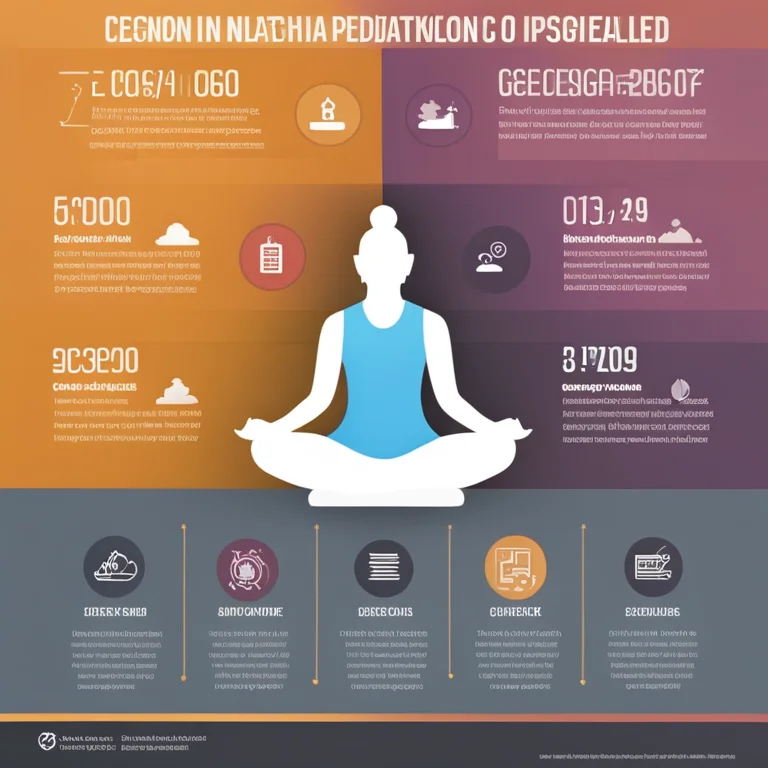
The Benefits of Meditation: A Path to Inner Peace
Discover how meditation can enhance your well-being and contribute to a balanced life in our comprehensive guide.
article by Hina Kurosawa
Introduction to Meditation
Meditation has been practiced for thousands of years, historically rooted in religious and spiritual traditions. Today, it is recognized as a form of mind-body complementary medicine, creating a deep state of relaxation and a tranquil mind. As our world grows increasingly complex, with constant digital stimulation and societal pressures, the need for mental clarity and stress reduction becomes paramount. Meditation offers an escape from the high-speed life many face in 2024, offering a way to slow down and reflect inwardly.

Stress Reduction and Mental Health
Regular meditation practice is widely heralded for its ability to lower stress levels. By focusing on the moment and quieting the mind, meditation can decrease the production of stress hormones, such as cortisol. In the fast-paced modern era, this practice is increasingly valued as a tool for psychological decompression. Moreover, meditation has been linked to improved symptoms of stress-related conditions, including anxiety disorders, depression, and post-traumatic stress disorder, making it an essential part of many mental health treatment plans.

Cognitive Benefits and Focus
One of the most compelling reasons to embrace meditation is its capacity to enhance cognitive functions. It has been shown to improve concentration, attention, and the ability to multitask. Meditation encourages neuroplasticity, the brain's ability to form new neural connections, which is vital as we continually adapt to new technologies and workflows. As we navigate the data-rich environment of 2024, the ability to focus amidst distractions is invaluable, and meditation provides a way to cultivate this skill.

Physical Health Improvements
The intersection of mind and body is nowhere more apparent than in the practice of meditation. Studies indicate that regular meditation can lower blood pressure, improve the immune system, and aid in pain management. These benefits are particularly relevant as healthcare shifts towards holistic and preventive approaches. With chronic diseases on the rise, incorporating meditation into daily routines can contribute to long-term physical health.

Emotional Well-Being and Self-Awareness
Meditation provides more than relief from tangible stress; it also allows for an exploration of the self. By meditating, individuals can gain a better understanding of their thought patterns, leading to improved emotional well-being. This heightened self-awareness can enhance empathy, patience, and the ability to navigate complex social and emotional landscapes. As we value emotional intelligence more in both personal and professional spheres, meditation offers a pathway to these essential traits.
Connection to the Present
Living in an age where the future is unpredictable and the past is an ever-growing digital record, connecting with the present moment is a challenge. Meditation roots its practitioners in the now, helping to alleviate the weight of past regrets and anxieties about the future. This practice reminds us that life is lived in the present, where mindfulness can lead to a more fulfilling and appreciative existence.
Published: 1/9/2024
Modified: 1/9/2024
More predictions
Come back here soon to learn more about yourself and your future


Mindful Rest: Integrating Meditation & Sleep for Well-being
Discover the synergy of meditation and sleep in enhancing mental, emotional, and physical health. This article delves into practices that combine these powerful restoration tools.


The Serenity Sojourn: Embrace a Meditation Retreat
Delve into the tranquility of a meditation retreat and rejuvenate your mind, body, and soul with practices that transcend time.


Retreat Into Serenity: A Guide to Meditation Getaways
Discover the transformative power of meditation retreats and how they can rejuvenate your mind, body, and soul.